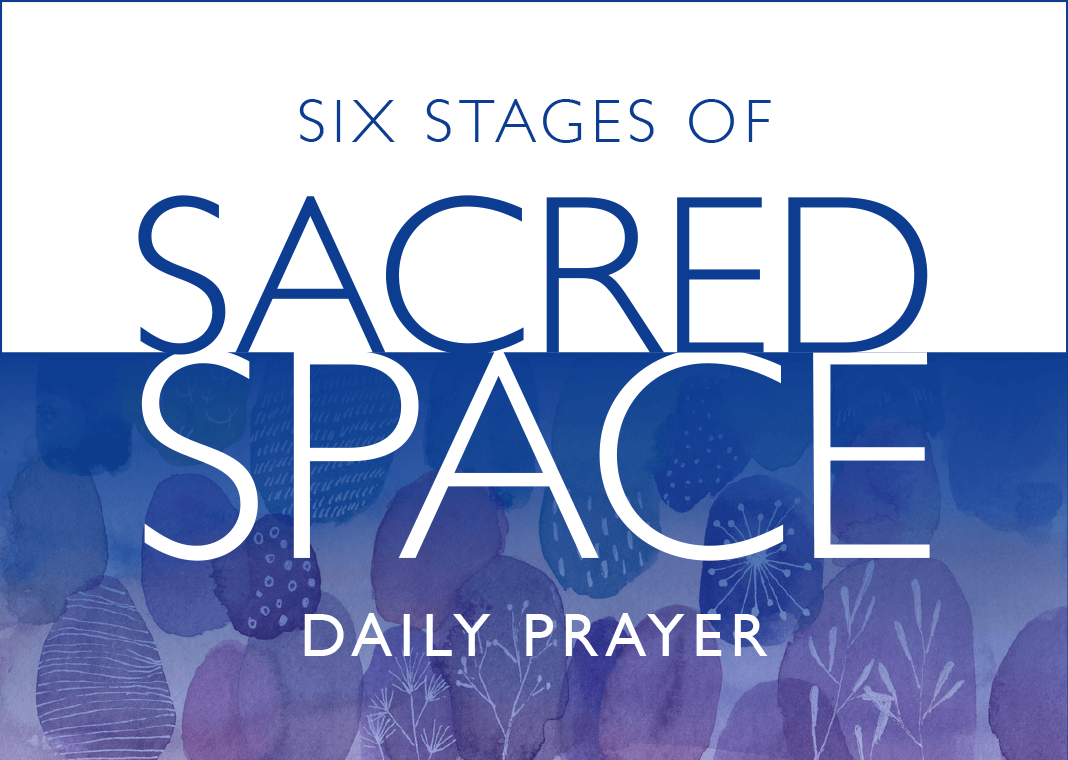Editor’s note: Sacred Space: The Prayer Book 2026 suggests six steps of prayer and contemplation for exploring the daily Scripture passages: The Presence of God, Freedom, Consciousness, The Word, Conversation, and Conclusion. We’ve invited our Ignatian bloggers to explore each step in our continuing series.
Consciousness
“How am I today? Where am I with God? With others? Do I have something to be grateful for? Then I give thanks. Is there something I am sorry for? Then I ask forgiveness.” (The Irish Jesuits, Sacred Space: The Prayer Book 2026)
People frequently look up the weather forecast to prepare for the day ahead. I’ve learned that checking my spiritual barometer leads me into more authentic prayer. It also helps me when praying in a small group with others: Who is the me I bring to the group conversation? What am I carrying? Did I have a fender bender on the way here? Have I just received exciting news?
How I react to the prayers being offered in the group will be colored by my attitude and experiences. The person I bring to any prayer circle will depend on whether I skipped praying that morning, received a call from one of the kids with big news, or disappointed someone I love by not following through on something.
Acknowledging my current reality opens doors to more honest reflection in a faith-sharing group. I’ve participated in groups in which people hesitate to mention difficult circumstances and negative emotions. But if we sugarcoat or hide our experiences, how can we share deeply?
A close friend died from a sudden heart attack. I really did feel grateful that my friend now was celebrating in heaven, free of any pain or suffering in the vale of tears this world can be. At the same time, when I stuck my wet finger up to gauge my wind’s direction, I noticed something more than gratitude. I floundered in anger. I couldn’t sit still. I paced. I stepped back and realized that what I was feeling was a normal stage of grief. I felt God inviting me to be gentle with myself. I could talk to God more freely right then and there.
When I met with a family member later that day, I described my internal weather report. Things were pretty stormy, and if I sounded irritable, I wanted him to know it wasn’t personal. I opened a door to a genuine expression of my life at that moment. As a result, he showed me gentleness and compassion.
True self-knowledge involves naming what’s happening inside me. By checking my weather, I better notice automatic thoughts. I can question them and boot out insidious evil influences. If I pause before releasing my personal hurricane on someone, I won’t need to seek forgiveness later. Asking one another about our personal weather avoids many misunderstandings.
God wants my honest self-expression. “Jesus, I feel mad. I know I should feel grateful, but I’m angry. And I’m here. I believe you love me just as I am.”
God meets me where I am. “Your wind is blowing from the East, my dear, and that explains a lot.”
By checking my internal forecast, I noticed a false spirit suggesting I pretend to be happy and present that false self to God. I adjusted, as if changing what I would wear that day, based on my meteorological report. I put up a metaphoric umbrella of honesty and shielded myself from a downpour of negativity.
I surrendered my mood to Jesus so that he could take care of everything. Only then did my heart come to rest, and I could hear Jesus preaching specifically to me. He said, “I love you.” And a surge of gratitude flooded over me.


We need to pray for the wellbeing of people of Jamaica, Haiti and Cuba. Out there Hurricane Melissa has caused much damage to life and property. May good Samaritans extend their helping hands to the affected in these challenging times.
I reread this today, yes we all need to do a spiritual weather check. When I do I am able to connect and allow the Holy Spirit to be present.
It is in that moment that I pause before saying a biting word.
The Weather Channel is talking about hurricane Melissa right now and the damage to Jamaica and Cuba. How perfectly this blog fits in with this. Loretta always shows her Jesuit background by relating what’s going on to where I am.
Harry